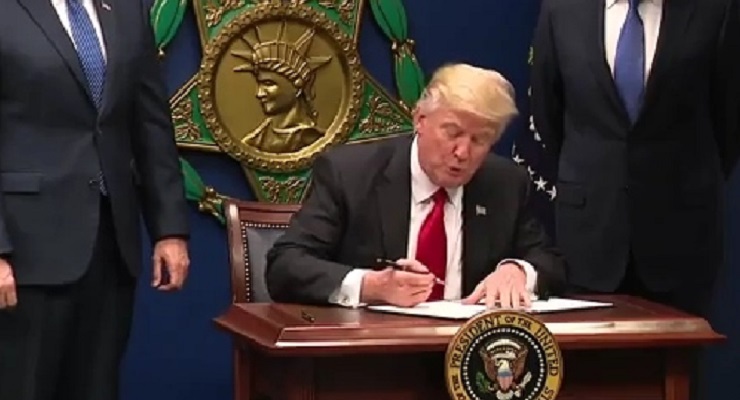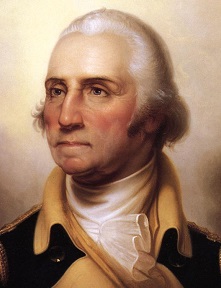
Various news outlets reported late Monday night that President Trump will not execute his “executive privilege” in order to block testimony to the Senate Intelligence Committee by fired FBI Director James Comey on Thursday. It had previously been speculated that Trump may invoke this privilege, citing his own right to privacy in conversation with other government officials.
According to The Washington Post, this would have been a problematic move particularly because Comey is no longer a government employee, per his termination by President Trump in May.
The executive privilege is not laid out directly in the US Constitution. It has, however, been legitimized as a presidential right by the US Supreme Court. In another instance when the Trump presidency is reminiscent of Nixon’s, the precedent for defining executive privilege comes from United States v. Nixon. In this case, Nixon had argued that he had the right to withhold information from the other branches of the US government in order to protect national security and interests. The Court concluded that while there was an element of executive privilege implied in the Constitution, specifically in regards to the separation of powers, it was not a privilege that was in any way absolute or immune from the checks intended by the separation of powers through disparate governmental branches.
It is understandable why experts cited by The Post would call this an unrecommendable strategy for the Trump White House as there are already accusations abounding that President Trump has come close to, if not overtly participated in, efforts to obstruct the cases against his administration. These cases are investigating the Russian interference into the 2016 presidential election, the potential collusion with that interference by members of Trump’s campaign team and administration, as well as likely ongoing efforts by Russia and other propagandists to discredit and destabilize democracy domestically and abroad.

In the earliest example of executive privilege, George Washington refused to send certain documents to the House of Representatives that pertained to the Jay Treaty with Great Britain. His reasoning, contrary to Trump’s apparent obstructionist, seemingly authoritarian ones, was that only the Senate had the authority to ratify treaties and therefore only the Senate needed to see said documents. He sent them to the Senate and not the House, setting a precedent most presidents have followed of complying in some way despite asserting their executive privilege.
It is important that it is termed a privilege and not a right because that phrasing recognizes that while it is an implied potential benefit of holding the office of the president, it is not an absolute, omnipotent right.
It is also important to assert that President Trump has not asserted his executive privilege in this case; but, that does not discount the fact that he was openly considering doing so. He is an elected official in a representative democracy; while our democracy is flawed and in the midst of an identity-reconfiguration, it is still a democracy. Donald Trump is not a leader with supreme, divine or absolute power; he is, in effect, an employee of the citizens of the United States.
This is why, in their conclusions about executive privilege, the Supreme Court asserted that the public good out-weighed the president’s need for privacy or, per the more sinister, self-serving actions by this administration, secrecy. The citizens of the United States have the right to know that their elected officials, especially the public leader—no matter who he/she/they are—is working only to uphold the integrity of our democracy. This should include encouraging the investigations into foreign meddling into that democracy as well as any and all other efforts to dislocate and discombobulate it. As the highest representative of our country’s democracy, and especially as a so-called populist president, his primary goal should be to protect, improve and elevate that democracy.
This is not a call for American exceptionalism. Though we are unique among the countries of this world, we have many flaws and lessons yet to learn as a sovereign nation. This is, instead, a call for American effort—effort to find the most ideal and functional version of the ideals that are considered by our own citizens and many around the world to be distinctly American.
It is also a call to remember that being distinctly American should not mean being different from everyone else; there are nations near and far which are handling the threats, problems and opportunity facing the globe at this current moment with creativity, intellect and efficiency. American exceptionalism should expand to include American humility: the ability to recognize when others do something better than us and work to incorporate those strategies into our own. Especially if they fulfill the highest ideals in our founding and evolved principles.
Executive privilege is far too close to divine right to be truly democratic. The president thus far is not carrying out his promises to even those who elected him and is considered by many to be dangerous, unfit or supremely incompetent at the job he has been tasked with. These facts, above everything else, should minimize any right he has to executive exceptionalism; the people who elected him, the people who did not elect him, the people who did not vote but still live their lives within our society and depend on our government are the greater good in this case. The future of our democracy is the greater good. Donald Trump would improve his legitimacy as a president if he stopped toying with authoritarian tactics and encouraged the systems and mechanisms that, though possibly flawed, work to ensure a balance of power necessary for optimal democratic representation.
Adrian Tawfik says
Great job Leanna! Welcome to the DC team! Very well done article on an interesting subject.